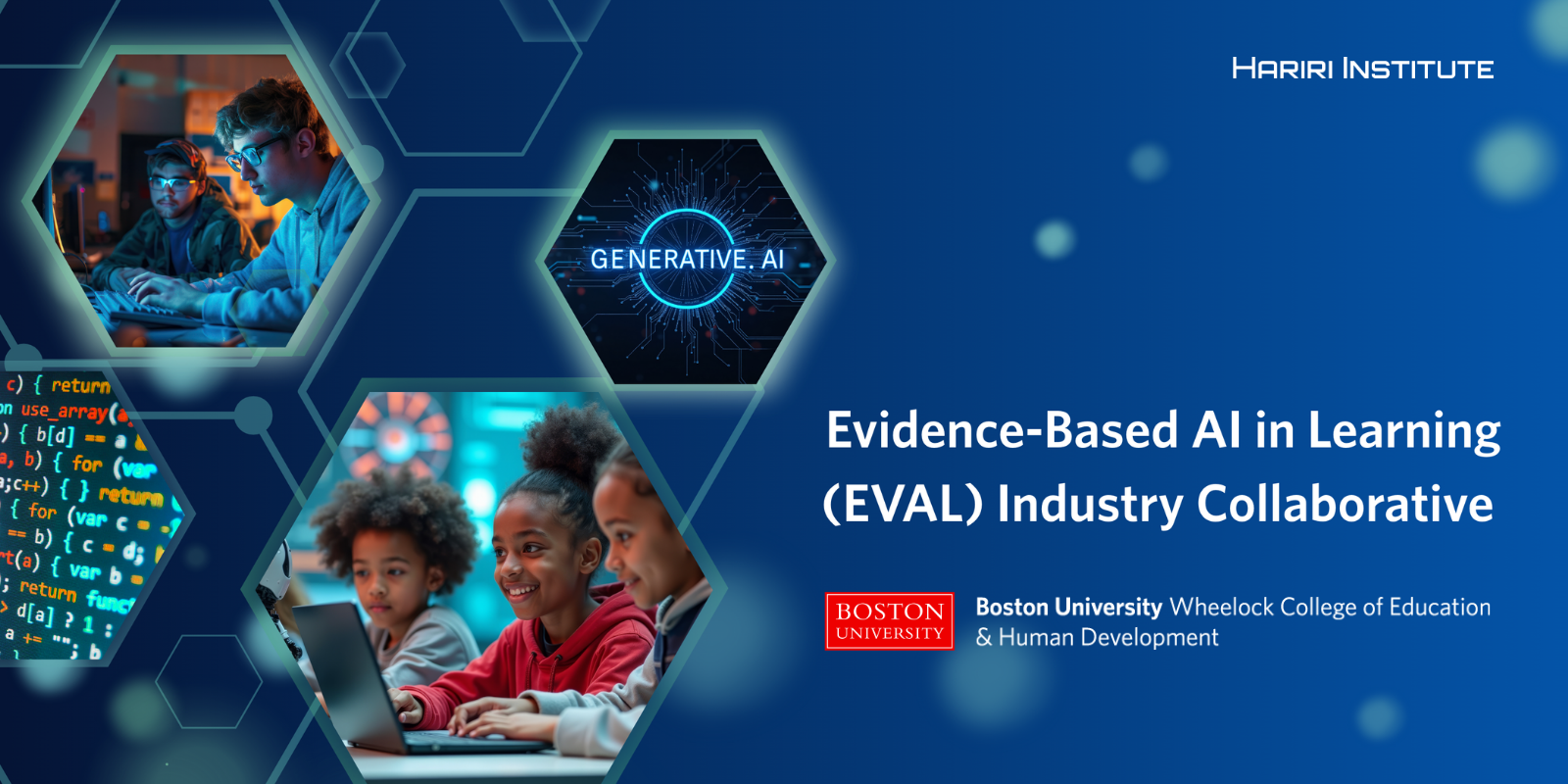EVAL Launches to Bridge the Gap Between AI EdTech Tools and Scientific Evidence
The Evidence-Based AI in Learning (EVAL) Industry Collaborative invites EdTech companies to enter their competition for independent validation.
Each August, commercials sing the tunes of nursery rhymes while stores transform their spaces into homeroom-esque displays for back-to-school shopping. Students and families flock to the aisles to gather essential items. After perusing endless pencils, notebooks, crayons, and glue sticks, one last check is done before heading to the register. “Do we have everything?” No; there is one essential supply missing, but it’s already waiting for students in the classroom: educational technology tools.
Today, most K-12 students use AI for school-related tasks, with nearly 50% using it weekly or daily. However, there is very little evidence on how these tools impact student learning. Only about 10% of educational technology tools have been evaluated for efficacy, and the numbers are even smaller for AI-based tools — a statistic Ola Ozernov-Palchik, Research Assistant Professor (Wheelock) and an Associate Director of Translational Research of the Hariri Institute’s AI & Education Initiative, strives to change through the Evidence-Based AI in Learning (EVAL) Industry Collaborative.

Led by Ozernov-Palchik and Project Coordinator Mary Bready, EVAL launched in October with a mission of combining rigorous research, educational science, and advanced computational methods to ensure that AI technologies in education are effective, ethical, and equitable. EVAL conducts rigorous research to evaluate AI tools’ impact on K-12 student learning outcomes.
As part of the launch, EVAL announced their “EdTech Research Challenge” — a competition that provides the research infrastructure and expertise EdTech companies need to demonstrate impact, build trust, and accelerate adoption.
“When it comes to children’s learning, good intentions and impressive technology are not enough,” says Ozernov-Palchik. “Imagine walking into a doctor’s office for critical treatment, not knowing whether the approach has been validated by science. Maybe the doctor prescribes an FDA-approved medication, or maybe they offer a self-made concoction. That uncertainty is exactly what we face in education today.”
EdTech Companies, Get Your AI Tool Certified Through the EVAL Challenge
The EVAL EdTech Research Challenge invites developers of innovative AI-powered K–12 learning tools to partner with BU researchers for a rigorous, independent study assessing the impact of their technology on student learning.
“We are building a network of incredible companies and organizations that share our mission,” says Ozernov-Palchik. “It’s exciting to see how different innovators are tackling urgent challenges in K–12 education and gaining a real sense of where and how new technologies are being used.”
The competition provides the winning company with a valuable prize package, including a rigorous, randomized control trial study valued at $150,000, marketing partnership rights, network access, follow-up support, and more.
Applications are open until November 17, 2025.
“We will partner with a selected company, dive deep into their AI-based tool, and design a rigorous research study around it,” says Ozernov-Palchik. “This is where our true convergent expertise at BU as researchers in education, cognitive science, and computer science comes into play. We then implement the study with real students and educators using the technology and examine what works, for whom, and under what conditions.”
Partnering for Impact
EVAL is situated at the AI and Education Initiative and supported by Wheelock College and the Hariri Institute. Wheelock College provides deep expertise in educational research across literacy, mathematics and science education, special education, early childhood, social-emotional learning, and multilingual education, as well as strong partnerships with schools and policymakers. The Hariri Institute contributes cutting-edge computational and data science capabilities, fostering cross-disciplinary collaborations that apply AI to pressing societal challenges. The AI & Education Initiative at the Hariri Institute bridges these strengths, advancing research at the intersection of AI, learning, and equity.
Other organizations at BU also supported EVAL’s launch.
“Naomi Caselli, Director of AI and Education Initiative and Leslie Dietiker, Associate Dean of Research, provided key guidance and support from the very beginning,” says Ozernov-Palchik. “The team in Industry Engagement also played an important role in helping us build partnerships and outreach strategies. We are especially grateful to Mary Bready, who has been the heart of EVAL’s coordination, ensuring that all the moving pieces come together seamlessly.”
EVAL plans to continue its collaborative spirit and expand its impact through thoughtful partnerships.
“Our shared vision is for EVAL to become a trusted framework and a stamp of approval that signals to schools, families, and funders that a tool has been rigorously tested and shown to make a real difference for students,” says Ozernov-Palchik. “Beyond the competition, we plan to build partnerships with companies and philanthropic organizations to create an ecosystem that promotes responsible innovation grounded in evidence, data, and transparency. Through this process, we aim to raise the standard of evidence for educational technology in K–12 learning.”
In addition to industry and philanthropic partnerships, Ozernov-Palchik invites faculty and students to help review submissions, contribute content expertise in research design and implementation, and support in ways that excite them. Interested parties can reach out to Ozernov-Palchik directly at oozernov@bu.edu. EVAL also has an advisory board to guide the future trajectory of the collaborative.
“We are fortunate to have an extraordinary advisory board of pioneering thinkers and practitioners who bridge science, education, and innovation, all united by a shared commitment to advancing equitable, evidence-based innovation to guide EVAL’s mission to ensure AI serves all learners,” says Ozernov-Palchik.
EVAL is also assembling an Educator Advisory Board to help ensure that the tools and research they support remain grounded in classroom realities and aligned with the needs of both educators and students.
The Evidence-Based AI in Learning (EVAL) Industry Collaborative is anchored at Boston University, bringing together the strengths of the Wheelock College of Education & Human Development, the Hariri Institute for Computing, and the AI & Education Initiative. More information about the EVAL Challenge and EVAL’s leadership, approach, and partnerships can be found on the EVAL website.

